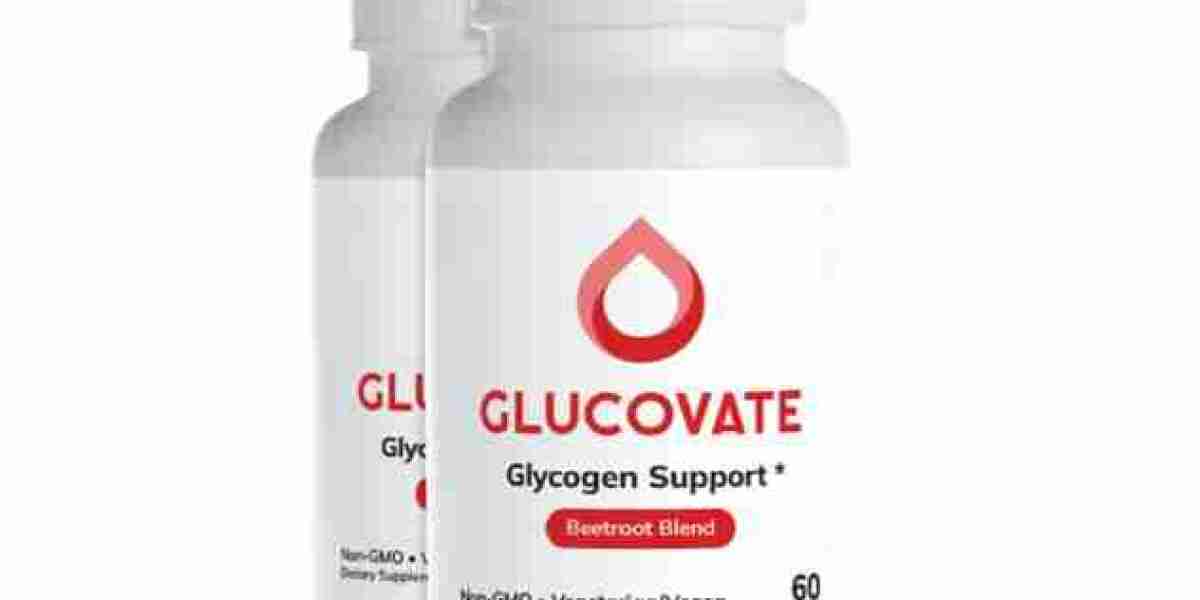Introduction
Finding the best nephrologist in Delhi can be overwhelming, especially when dealing with kidney-related health issues. To help you make informed decisions, we’ve compiled 100 of the most commonly asked questions about nephrology, treatments, costs, and expertise at Epitome Hospital—Delhi’s leading kidney care center.
Whether you’re looking for a kidney specialist, dialysis options, or transplant advice, this guide has you covered.
General Questions About Nephrology
1. What is a nephrologist?
A nephrologist is a doctor specializing in kidney diseases, hypertension, electrolyte imbalances, and dialysis/transplant care.
2. When should I see a nephrologist?
If you have chronic kidney disease (CKD), frequent UTIs, high creatinine levels, or uncontrolled hypertension, consult a nephrologist.
3. What’s the difference between a nephrologist and a urologist?
A nephrologist treats medical kidney conditions (e.g., CKD, dialysis), while a urologist handles surgical issues (e.g., kidney stones, prostate).
4. How do I find the best nephrologist in Delhi?
Look for experience, patient reviews, hospital affiliations (like Epitome Hospital), and specialization in your condition.
5. Why choose Epitome Hospital for kidney treatment?
Epitome Hospital has top nephrologists, advanced dialysis units, and high success rates in kidney transplants.
Kidney Disease & Diagnosis
6. What are the early signs of kidney disease?
Fatigue
Swollen feet/ankles
Foamy urine
High blood pressure
7. How is kidney disease diagnosed?
Through blood tests (creatinine, GFR), urine tests, ultrasounds, and biopsies.
8. What causes chronic kidney disease (CKD)?
Diabetes
Hypertension
Genetic disorders (e.g., PKD)
Chronic infections
9. Can kidney disease be reversed?
Early-stage CKD can be managed, but advanced damage may require dialysis or transplant.
10. What is the normal creatinine level?
Men: 0.7–1.3 mg/dL
Women: 0.6–1.1 mg/dL
Dialysis FAQs
11. What is dialysis?
A procedure that filters waste from blood when kidneys fail.
12. How long can a person live on dialysis?
With proper care, 5–30 years, depending on health.
13. What’s the cost of dialysis in Delhi?
At Epitome Hospital, it starts at ₹1,500–₹3,000 per session.
14. Is home dialysis possible?
Yes, peritoneal dialysis (PD) can be done at home.
15. Does dialysis hurt?
No, but you may feel tired or dizzy afterward.
Kidney Transplant FAQs
16. Who needs a kidney transplant?
Patients with end-stage renal disease (ESRD) who can’t survive on dialysis.
17. What’s the success rate of kidney transplants?
At Epitome Hospital, over 90% of transplants are successful.
18. How long is the waiting list for a kidney in Delhi?
It varies, but living donor transplants are faster (2–6 months).
19. Can a family member donate a kidney?
Yes, if they’re a blood and tissue match.
20. What’s the cost of a kidney transplant in Delhi?
Approx. ₹5–₹15 lakhs, depending on the hospital.
Hypertension & Kidney Health
21. How does high BP damage kidneys?
It strains kidney blood vessels, leading to CKD.
22. What’s the best diet for kidney patients?
Low sodium
Controlled protein
Limited potassium
23. Can drinking more water improve kidney function?
Yes, but excess water harms CKD patients.
Pediatric Nephrology
24. Do children need nephrologists?
Yes, for congenital kidney defects, UTIs, or nephrotic syndrome.
25. Where can I find the best pediatric nephrologist in Delhi?
Epitome Hospital has specialized pediatric kidney experts.
Myths vs. Facts
26. Myth: Kidney disease is always hereditary.
Fact: Only some types (e.g., PKD) are genetic.
27. Myth: Dialysis is a permanent cure.
Fact: It’s a lifesaving treatment, not a cure.
Cost & Insurance
28. Does insurance cover kidney treatment?
Most health plans cover dialysis and transplants.
29. Are there government schemes for kidney patients?
Yes, Ayushman Bharat covers dialysis and transplants.
Why Choose Epitome Hospital?
30. What makes Epitome Hospital the best for nephrology?
Top-rated nephrologists
24/7 dialysis units
High transplant success rates
Kidney Function & Tests
What is GFR in kidney tests?
GFR (Glomerular Filtration Rate) measures how well your kidneys filter blood. Below 60 for 3+ months indicates CKD.How often should kidney function be tested?
Annually if you have diabetes/hypertension; every 3-6 months for CKD patients.What does protein in urine indicate?
Possible kidney damage (proteinuria). Even small amounts need investigation.Are kidney function tests painful?
No, just blood/urine tests. Only kidney biopsies involve minor discomfort.Can kidneys repair themselves?
Some acute injuries can heal, but chronic damage is usually permanent.
Treatment Options
What's better: dialysis or transplant?
Transplant offers better quality of life if you're eligible.Are there alternatives to dialysis?
Only for very early CKD - medications, diet control, but ESRD requires dialysis/transplant.What's the latest treatment for CKD?
Newer options include SGLT2 inhibitors (for diabetic CKD) and advanced dialysis techniques.Can Ayurveda cure kidney disease?
No proven cure, but some herbs may help symptoms (always consult your nephrologist first).Does Epitome Hospital offer stem cell therapy for kidneys?
Currently, stem cell therapy remains experimental for kidney disease.
Dialysis Specifics
How many hours per week is dialysis needed?
Typically 3 sessions/week, 4 hours each for hemodialysis.Can I travel while on dialysis?
Yes, but you'll need to arrange dialysis at your destination.Why do dialysis patients need to limit fluids?
Excess fluid causes swelling, high BP, and breathing difficulties.What's the difference between hemodialysis and peritoneal dialysis?
Hemodialysis uses a machine; PD uses abdominal lining as filter.Which dialysis type does Epitome Hospital specialize in?
Both types, with advanced hemodialysis units and PD training programs.
Transplant Details
What's the ideal age for kidney transplant?
18-70 years generally, but depends on overall health.How long does a transplanted kidney last?
Living donor kidneys last 15-20 years on average.Can a diabetic patient get a kidney transplant?
Yes, if other health parameters are stable.What medications are needed post-transplant?
Immunosuppressants (like tacrolimus) to prevent rejection.Does Epitome Hospital do laparoscopic donor nephrectomy?
Yes, this minimally invasive technique reduces donor recovery time.
Diet & Lifestyle
What fruits should kidney patients avoid?
Limit high-potassium fruits like bananas, oranges, kiwis in advanced CKD.Is coffee bad for kidneys?
In moderation (1-2 cups/day) it's generally fine for most patients.Can kidney patients drink alcohol?
Occasional small amounts may be okay, but consult your nephrologist.What exercises are safe for CKD patients?
Walking, swimming, yoga - avoid extreme dehydration/overexertion.Does smoking affect kidneys?
Yes, smoking worsens kidney disease progression.
Pediatric Kidney Care
What are signs of kidney problems in children?
Poor growth, swollen eyes/feet, frequent UTIs, high blood pressure.Can children get kidney transplants?
Yes, Epitome Hospital has pediatric transplant programs.What causes bedwetting in older children?
Sometimes kidney/urinary tract issues - worth investigating.How is nephrotic syndrome treated in kids?
Steroids are first-line treatment; most children respond well.Do children need different dialysis than adults?
Same principles, but equipment and doses are adjusted for size.
Pregnancy & Kidneys
Is pregnancy safe with kidney disease?
Possible with careful monitoring - high-risk pregnancy specialists needed.Can kidney problems cause infertility?
Advanced CKD can affect fertility in both men and women.Does pregnancy harm kidneys?
In healthy women, no. Those with CKD need close monitoring.What's preeclampsia's connection to kidneys?
It involves kidney stress causing protein leakage and high BP.Can you breastfeed while on kidney medications?
Some are safe, others not - always check with your nephrologist.
Emergency Situations
When is kidney pain an emergency?
If accompanied by fever, vomiting, or inability to urinate.What's the fastest way to reduce high creatinine?
Treat the underlying cause - may need IV fluids or dialysis.Can kidney failure cause sudden death?
Yes, if potassium becomes dangerously high (cardiac arrest risk).What's the survival rate for acute kidney injury?
Depends on cause - from 30-70% with proper treatment.Does Epitome Hospital have 24/7 nephrology emergency care?
Yes, with round-the-clock dialysis availability.
Alternative Therapies
Is homeopathy effective for kidney disease?
No scientific evidence it can treat serious kidney conditions.Can acupuncture help kidney patients?
May help with some symptoms like pain, but not kidney function.Are kidney cleanses beneficial?
No - healthy kidneys don't need "cleansing"; risky for CKD patients.Does fasting help kidneys?
Not recommended for CKD patients due to dehydration risks.What about herbal kidney supplements?
Many can be harmful - always check with your nephrologist first.
Technology & Innovations
What's the latest dialysis machine technology?
Epitome uses advanced machines with better toxin clearance.Are there wearable artificial kidneys?
Still in development, not yet available clinically.What's tele-nephrology?
Remote kidney care consultations - offered at Epitome Hospital.Can AI help in kidney disease management?
Emerging for predicting disease progression and treatment responses.Does Epitome Hospital participate in kidney research trials?
Yes, offering patients access to cutting-edge therapies.
Cost & Insurance
What's the monthly cost of kidney disease management?
₹5,000-₹50,000 depending on treatment stage.Does CGHS cover kidney treatments?
Yes, for empaneled hospitals like Epitome.Are there NGOs that help with kidney treatment costs?
Several, including the National Kidney Foundation.What's the cost difference between government and private hospitals?
Private hospitals charge 2-5x more but offer better amenities.Does Epitome Hospital offer EMI options?
Yes, for major procedures like transplants.
Mental Health & Support
How to cope with depression from kidney disease?
Counseling, support groups, and sometimes medications help.Are there kidney patient support groups in Delhi?
Yes, including ones affiliated with Epitome Hospital.How to talk to children about parent's kidney disease?
Honestly but reassuringly, with professional guidance if needed.Can kidney disease affect memory?
Yes, "brain fog" is common with advanced CKD.Does meditation help kidney patients?
Yes, for stress management and blood pressure control.
Prevention
Can kidney stones be prevented?
Drink 3-4L water daily, limit salt/oxalate-rich foods.What vaccines do kidney patients need?
Hepatitis B, flu, pneumonia vaccines are especially important.How to prevent CKD if diabetic?
Control blood sugar, BP, get regular kidney checks.Are annual kidney checkups necessary after 40?
Yes, especially with diabetes/hypertension/family history.Can dehydration cause permanent kidney damage?
Severe/prolonged dehydration can, but usually reversible if treated early.
Miscellaneous
Why do kidney patients feel cold?
Anemia and slowed metabolism are common causes.Can kidney disease cause itching?
Yes, from mineral imbalances in advanced CKD.Why do dialysis patients have dietary restrictions?
To prevent dangerous buildup of potassium, phosphorus, etc.Can you fly with kidney disease?
Most can, but dialysis patients need special arrangements.How do I book an appointment at Epitome Hospital?
Call 70-6540-6540 or visit https://www.epitomehospitals.com/best-nephrologist-in-delhi/







